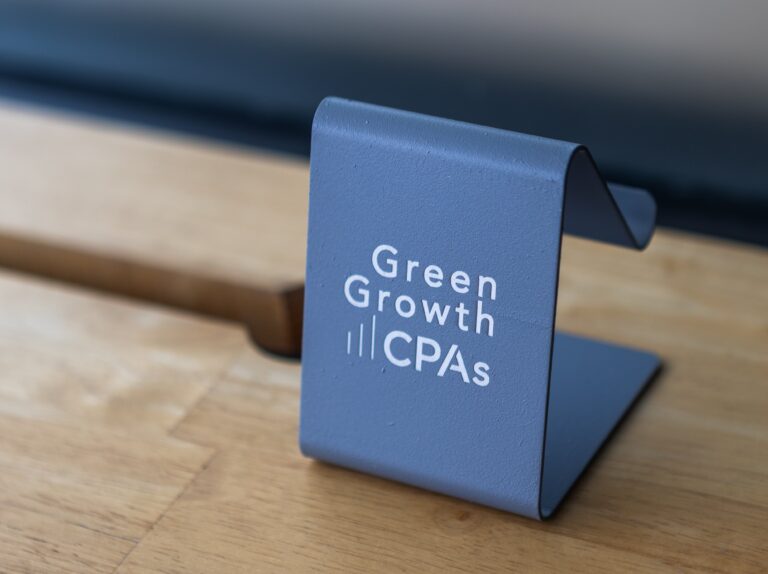As an independent artist or creator, understanding the ins and outs of taxes is crucial for managing your finances and maximizing your deductions. Navigating the complex world of tax preparation can be overwhelming, but with the right knowledge and guidance, you can ensure that you’re taking full advantage of all available tax benefits.
In this comprehensive guide, we’ll provide you with essential tax advice tailored specifically to independent contractors in the arts and entertainment industry. From itemized deductions to the home office deduction, we’ll cover everything you need to know to stay on top of your tax obligations and make informed decisions for your business.
Who is Considered a Self-Employed Artist?
Before we delve into the specifics of tax obligations, let’s clarify who is considered a self-employed artist. Generally, if you work for yourself and are not an employee of another individual or company, you fall under the category of self-employment. This includes freelance artists, independent contractors, and sole proprietors in the creative industry.
Understanding Self-Employed Tax Obligations
As a self-employed individual, you are responsible for filing an annual tax return and paying estimated taxes quarterly. Unlike traditional employees, self-employed individuals must pay both self-employment (SE) tax and income tax.
The SE tax is similar to the Social Security and Medicare taxes that are withheld from the pay of most wage earners. It is calculated based on your net profit, which is determined by subtracting your business expenses from your business income. If your expenses exceed your income, you may have a net loss, which can be deducted from your gross income on your tax return.
To determine if you are subject to self-employment tax and income tax, you must calculate your net profit or loss from your business. If your net earnings from self-employment were $400 or more, you are required to file an income tax return. However, even if your net earnings are below $400, you may still need to file if you meet other filing requirements
Making Quarterly Payments: The Estimated Tax Process
As a self-employed artist, you are responsible for paying Social Security and Medicare taxes, as well as income tax. Since these taxes are not withheld by an employer, you must make quarterly estimated tax payments. These payments can be calculated using Form 1040-ES, Estimated Tax for Individuals.
Start by estimating your expected income for the year and use the worksheet provided in Form 1040-ES to determine if you are required to make quarterly estimated tax payments. If you overestimated your earnings for a quarter, you can adjust your estimated tax for the next quarter by completing another Form 1040-ES worksheet. Conversely, if you underestimated your earnings, you should also recalculate your estimated taxes for the subsequent quarter.
You can make your estimated tax payments to the IRS by mail using the vouchers they provide in Form 1040-ES or through the Electronic Federal Tax Payment System (EFTPS). It’s important to stay on top of your estimated tax payments to avoid penalties and interest charges.
Filing Your Annual Return: Schedule C and Schedule SE
When it’s time to file your annual tax return, you will need to report your business income or loss using Schedule C, Profit or Loss from Business. Schedule C is used to report income or loss from a business you operated as a sole proprietor or as an independent contractor.
To calculate your self-employment tax, you will also need to file Schedule SE, Self-Employment Tax. Schedule SE uses the income or loss calculated on Schedule C to determine the amount of Social Security and Medicare taxes you should have paid throughout the year.
Understanding Information Return Requirements
If you made or received payments as a small business or self-employed individual, you are likely required to file an information return to the IRS. Information returns, such as Form 1099, report income paid to non-employees, such as independent contractors. Failing to file the necessary information returns can result in penalties, so it’s essential to stay compliant with these requirements.
Choosing the Right Business Structure
When starting a business as an independent artist or creator, you must choose the appropriate business structure. The most common forms of business entities are sole proprietorships, partnerships, corporations, S corporations, and Limited Liability Companies (LLCs). Each business structure has different tax implications, so it’s essential to understand the advantages and disadvantages of each option.
Consulting with a tax professional or accountant can help you determine the most suitable business structure for your specific needs. They can guide you through the process and ensure that you comply with all tax obligations associated with your chosen structure.
Allowable US Tax Deductions
Office Expenses
- Home expenses (rent, mortgage interest, property taxes, utilities, home insurance, some repairs) based on the amount of pro-rata space used for your music business
- Rehearsal or rental space
- Postage and courier fees
- Office supplies used for earning income
- Industry-related subscriptions, magazines
- Buying music for research
- DVDs, CDs, or digital recordings purchased for a specific educational purpose
- Telephone and internet costs
- Streaming services
Travel Expenses
- Flights
- Hotels
- Uber/taxi
- Parking
- Business meals and meals while on the road (normally 50% deductible, but temporarily 100% for certain types of meals)
- Car expenses (gas, repairs, insurance, etc.), but only a portion based on the business miles driven as a percentage of the total miles driven. Check IRS Automobile Mileage Rate Allowance; be sure to keep a vehicle log.
Instrument/Equipment Expenses
- Instrument or equipment purchased (normally depreciated, but may possibly be expensed all in one year)
- Instrument insurance
- Replacement parts or instrument repairs
- PA or gear rentals
Performance Expenses
- Wardrobe used in performance (only if theatrical or costume in nature)
- Cleaning/repairing stage clothing (subject to limitations mentioned above)
- Fees paid to other players or accompanists (subcontractors)
- Agent or manager commissions
- Headshots or promotional photos
- Advertising
- Cost of recording demos
- Sound recording costs (subject to special amortization rules)
Fees
- Union dues (only for the self-employed)
- Professional association memberships
- Legal and accounting or other professional fees
- Interest on loans taken out for music-related business purposes
- Agent commissions
Frequently Asked Questions
Do artists have to file income tax?
Yes, artists, like any self-employed individual, are required to file income tax returns if their net earnings from self-employment are $400 or more.
How much does a record deal get taxed?
The taxation of a record deal can vary depending on the specific terms and conditions of the contract. It’s important to consult with a tax professional to understand the tax implications of your specific record deal.
How do independent contractors file their taxes?
Independent contractors typically file their taxes using Schedule C to report their business income or loss. They also need to file Schedule SE to calculate their self-employment tax.
What expenses can artists claim as deductions?
Artists can claim various expenses as deductions, including art supplies, equipment, studio rent, marketing and promotional expenses, travel expenses related to business activities, and professional fees.
Conclusion
As an independent artist or creator, understanding your tax obligations and maximizing your deductions is crucial for financial success. By familiarizing yourself with the tax advice provided in this guide and seeking professional assistance from experts like GreenGrowth CPAs, you can navigate the complexities of self-employment taxes with confidence. With the right support, you can optimize your tax strategy and focus on what you do best: creating exceptional art.
Don’t leave your tax obligations to chance. Reach out to us today and let GreenGrowth CPAs be your trusted tax partner.





